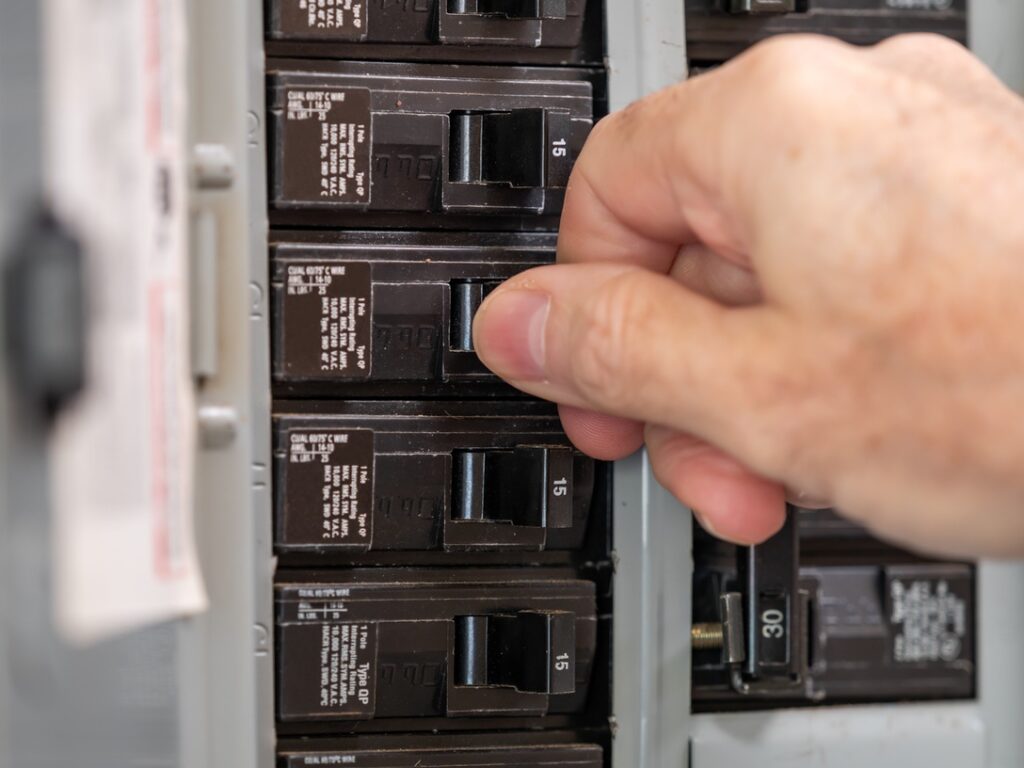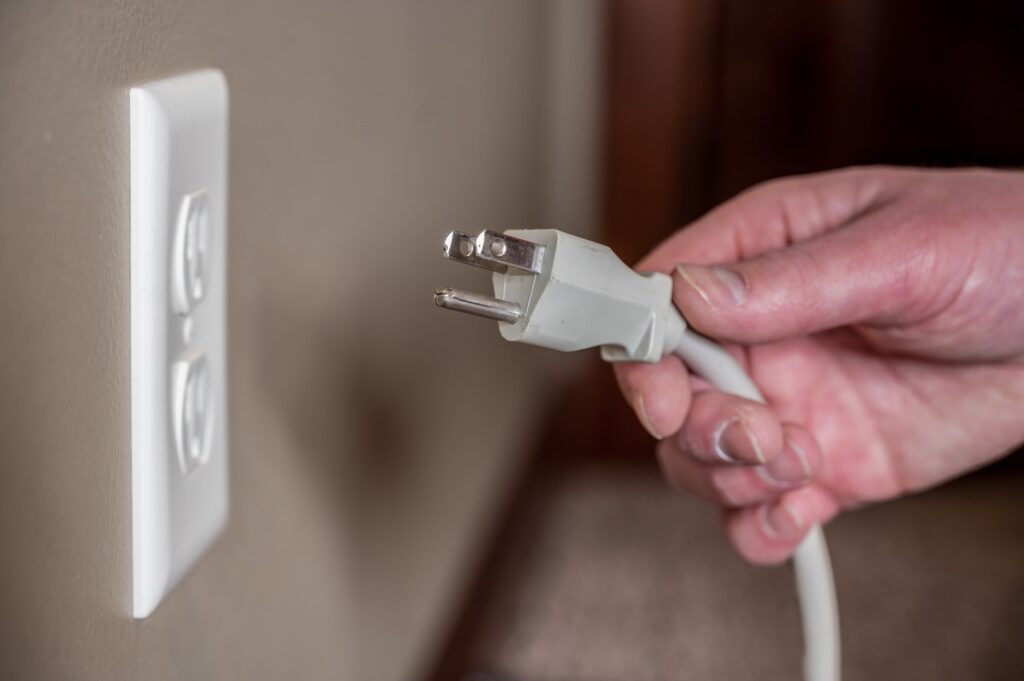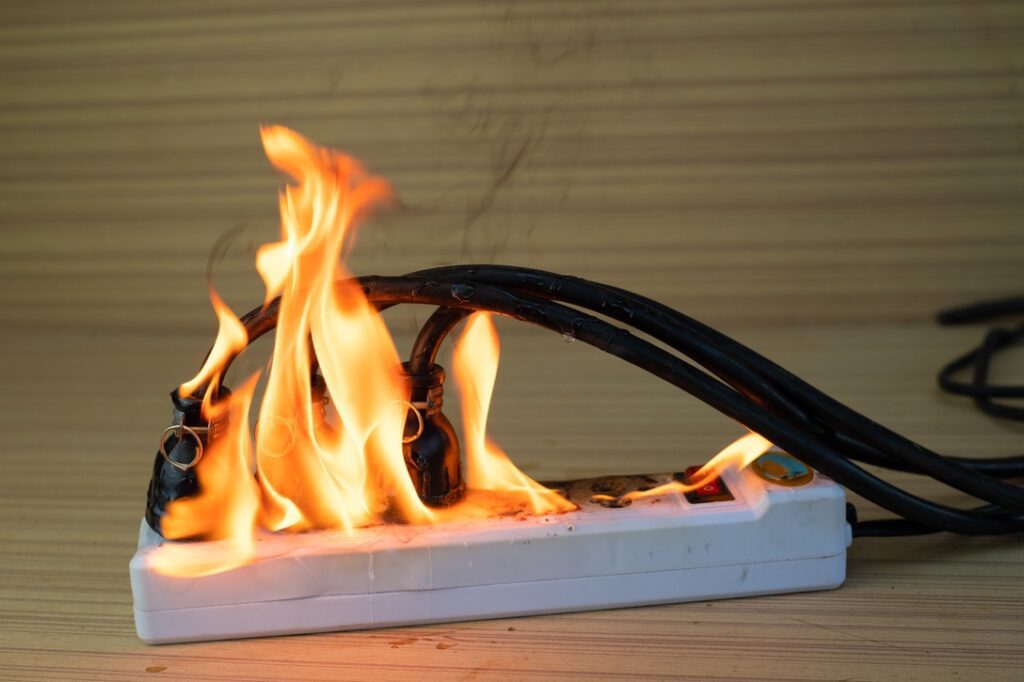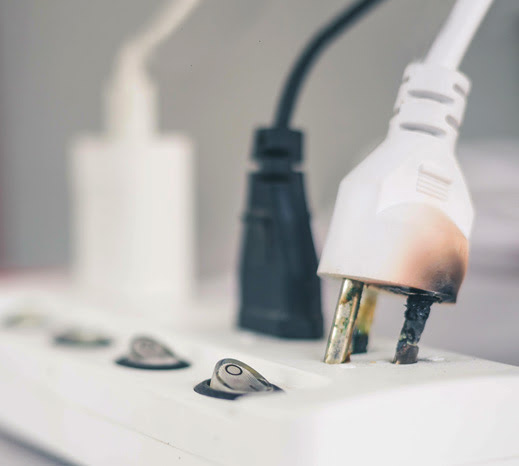The electrical systems in your home provide you with comfort and convenience, but they can pose a safety risk if you don’t keep them well maintained. Our home electrical services help homeowners throughout Calgary keep their lights, appliances, and other electrical fixtures working reliably—but you should also learn to recognize potentially dangerous electrical problems for yourself so you can call for help as soon as you see the signs.
Read on to have the experienced professional electricians at 4-Star Electric walk you through 5 of the most common electrical hazards in homes—along with their risks, telltale signs, and next steps. With our help, you’ll be able to improve your home’s electrical safety in a flash (but not a literal one).
See also:
The Risks of Ignoring Home Electrical Hazards
It’s never a good idea to wait until a potential electrical problem turns into an emergency. Once that happens, you’re probably already looking at extensive damage to your home, expensive repairs, and possibly even physical injuries. Electrical problems ignored for too long often cause:
- Increased risk of electrical fire
- Power outages
- Electrocution
- Damaged appliances and electronic devices
Instead, learn how to prevent these issues, recognize them as soon as they start to develop, and solve them quickly. Without any further ado, let’s get to the list.

Risk #1: Overloaded Circuits
You can easily overload your electrical circuits when you plug too many devices or appliances into the same circuit—causing the breaker to trip or the wires to overheat. Your breaker is designed to shut off the flow of electricity to protect the circuit from damage. However, if the circuit breaker trips too often, it runs an increased risk of failing—which leaves your wiring unprotected.
In turn, when too much current flows through the wires, they can overheat and potentially ignite any flammable material nearby. The heat generated by an overloaded circuit can also damage electrical devices connected to the circuit, such as lamps, appliances, or electronics. This can create sparks and cause electrical arcing, which can start fires as well.
How to Recognize an Overloaded Circuit
- Circuit breaker tripping often
- Fuses that blow frequently
- Warm or hot outlets or switches
How to Prevent & Solve
- Unplug some of the devices on the circuit
- Have a professional electrician upgrade your electrical panel or wiring
- Consider using a power strip with an internal circuit breaker to prevent overloading
Risk #2: Faulty Wiring
Over time, the insulation on wires can become brittle and crack, exposing the live electrical conductors. Wiring can also become damaged due to physical wear and tear, such as bending, twisting, or crushing.
When live electrical conductors are exposed, they can shock or electrocute anyone who comes into contact with them. Additionally, faulty wiring can cause power surges, which can damage electrical devices and appliances, potentially leading to short circuits, electrical shocks, and fires.
How to Recognize Faulty Wiring
- Flickering lights
- Sparks or smoke from outlets or switches
- A burning smell coming from electrical devices or outlets
- Frequently tripping circuit breakers
How to Prevent & Solve
- Turn off the power to the affected area
- Call a professional electrician to diagnose and repair the problem
- Consider having your home’s wiring inspected to identify any potential hazards

Risk #3: Using Faulty Outlets
Most electrical outlets are only designed to last for 15 to 20 years, and frequently-used outlets may wear out even sooner. When this happens, the connection in the outlet can become loose, which can cause the electrical current flowing through it to heat up, potentially overheating the outlet and starting a fire.
How to Recognize a Faulty Outlet
- Sparks or smoke
- A burning smell
- A loose or damaged faceplate or outlet
- The outlet feels warm or hot to the touch
How to Prevent & Solve
- Turn off the power to any affected outlets
- Call a professional electrician to diagnose and repair damaged outlets
- Having your home’s electrical outlets inspected regularly to identify potential hazards

Risk #4: Improper Use of Extension Cords
Extension cords are a convenient way to plug in devices that aren’t located near wall outlets, and they can be used to connect more devices at once than you could with only the outlets in your home. However, extension cords can pose a serious safety hazard if they’re used improperly—which is more common than you might think.
Plugging too many electrical devices into the same extension cord can cause the cord to become overloaded, increasing the risk of electrical fires and damaging the devices. Using an extension cord that is not rated for the type of device you are using it with can also cause the cord to overheat and potentially start a fire—for example, never use an extension cord rated for outdoor use inside the home, and vice versa.
How to Recognize an Improperly Used Extension Cord
- Too many devices plugged in at once
- Using the wrong type of extension cord for your devices or location
- Physical damage to the cord or noticeable wear and tear
How to Prevent & Solve
- Limit the use of extension cords to temporary situations
- Use the correct type of extension cord for the device
- Consider having additional electrical outlets installed by a professional electrician
Risk #5: Outdated Electrical Equipment
Outdated electrical equipment, such as old wiring, fuse boxes, and circuit breakers, can pose a serious hazard to your home and family. This equipment is not designed to handle the demands of modern electrical devices, which can lead to electrical fires and power outages.
How to Recognize Outdated Electrical Equipment
- Old fuse boxes or circuit breakers
- Outdated wiring
- Frequently tripping circuit breaker
How to Prevent & Solve
- Have a professional electrician inspect your home’s electrical equipment
- Consider upgrading your electrical equipment to ensure it can handle the demands of modern electrical devices
Safely Solving Your Home Electrical Hazards
Learning how to spot the problems listed above isn’t too difficult—but fixing them requires help from professionals who are qualified to carry out the work. Hiring 4-Star Electric to inspect your home’s electrical equipment on a regular basis and solve any problems we find is the best way to minimize your risk, and we recommend calling us ASAP if you notice signs of an electrical problem that could lead to an emergency.


